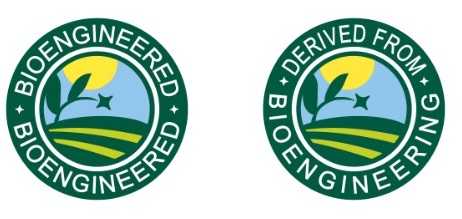What’s going on in the ever-changing world of regulatory? Our resident regulatory guru, Ashley Brooks, is here to help! Here are some of the most pressing hot topics in regulatory that food companies should be paying attention to.
The Final Rule on Bioengineered Food Labeling
The USDA announced the final National Bioengineered Food Disclosure Standard (GMO labeling) on Dec. 20, 2018 and set the implementation date at Jan. 1, 2020, except for small food manufacturers, whose implementation date is Jan. 1, 2021. The mandatory compliance date is Jan. 1, 2022.
The final rule defines BE foods as those that contain detectable genetic material that has been modified through certain lab techniques and cannot be created through conventional breeding or found in nature.
If a food or food ingredient is BE and if records cannot prove it is not BE or not highly refined, the food must bear a BE disclosure. The USDA provides a List of Bioengineered Foods as a “tool” but the list is not exhaustive. Options for disclosure include: text, symbol, electronic or digital link, and/or text message. Additional options such as a phone number or web address are available to small food manufacturers.
The USDA has approved the following on-pack symbols:

This final version differs little from its draft versions – the key changes are:
• The BE rule will not require disclosure for highly refined products that do not contain genetic material.
• There is an option to voluntarily disclose information about highly refined foods derived from BE sources, using specific text (“derived from bioengineering”) or symbol, but is narrow in scope.
• Incidental additives will not be required to be disclosed. Only an additive required to be labeled as an ingredient would trigger the disclosure requirement.
• The BE final rule establishes a threshold where no disclosure is required when the food contains no more than 5% per ingredient of inadvertent or technically unavoidable BE substances. There is no threshold allowance for any intentional BE presence.
• The rule removes the proposed option to use the term “may be bioengineered”
For more information, see the USDA site:
https://www.ams.usda.gov/rules-regulations/be and this FAQ Fact Sheet
FDA Considers Declaring Sesame a Major Food Allergen
The FDA is looking into treating sesame as an allergen. Currently, sesame is not required to be disclosed as an allergen, and in some cases, sesame may be exempt from being listed by name in the ingredient statement on food packages. The move would put sesame alongside the eight allergens (peanuts, tree nuts, milk, eggs, soybean, wheat, fish, and shellfish) named by the Food Allergen Labeling and Consumer Protection Act of 2004. The public comment period closed Dec. 31st 2018. We now await the FDA’s determination. FDA Sesame Docket [Now Closed]
Approval of 7 Artificial Flavors Revoked
In October 2018 the FDA issued a ban on six artificial flavors, after research demonstrated a link to cancer in laboratory animals, including synthetically-derived benzophenone, ethyl acrylate, methyl eugenol, myrcene, pulegone, and pyridine. The de-listing of approval applies to the synthetic substances only and does not apply to natural forms of the flavoring substances. Additionally, the agency revoked approval of styrene, which is no longer used by the industry. The agency is giving food processors 24 months to phase out these substances in question. Constituent Update: FDA Removes 7 Synthetic Flavoring Substances from Food Additives List
Nutrition Facts Label Compliance Date Extended Until 2020
The FDA published its final rule on changes to the Nutrition Facts Label in May 2016 and gave the original compliance date. Some of the changes included a larger type size for calories, a mandatory declaration of added sugars, and a mandatory listing of vitamin D and potassium. Then in May 2018, FDA extended the compliance dates for the rules from July 26, 2018, to January 1, 2020, for manufacturers with $10 million or more in annual food sales, and to January 1, 2021, for manufacturers with less than $10 million in annual food sales.
In November, the FDA issued guidance to support industry compliance with the upcoming rules:
FDA Guidance FAQ Compliance Date, Added Sugars, Vitamins, Minerals
FDA Guidance Serving Sizes and Miscellaneous Topics
FDA Sets Uniform Compliance Date
Last month, the FDA announced that January 1, 2022, will be the uniform compliance date for all final food labeling regulations issued in 2019 and 2020. The compliance date does not apply to final rules issued by the FDA before January 1, 2019.
Need help navigating regulatory requirements? Reach out to Ashley at [email protected].

